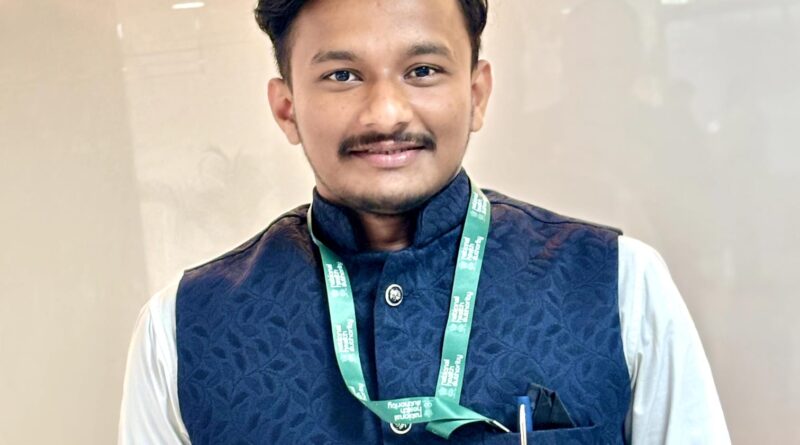“Do We Truly Prioritize Our Happiness and Peace?” read expert insights of Hrudananda Prusty, Author & Social Activist

Chandigarh: In the relentless pursuit of success, wealth, and societal validation, the quest for happiness and inner peace often takes a backseat. In a fast-paced world driven by consumerism and competition, individuals frequently overlook the significance of their mental well-being. But do we genuinely care for our happiness and peace, or are we merely chasing external markers of success? Let’s delve deeper into this introspective inquiry.
Hrudananda Prusty, Author & Social Activist obsessed that firstly, it’s essential to understand the concept of happiness and peace. Happiness is not merely the absence of sadness but a state of contentment and fulfillment derived from meaningful experiences, relationships, and personal growth. Peace, on the other hand, encompasses tranquility, harmony, and emotional balance amidst life’s challenges. Both are integral components of holistic well-being, yet they often get overshadowed by materialistic pursuits.
He underlines that our modern society, there’s an inherent pressure to conform to societal norms and expectations. We’re conditioned to believe that success is synonymous with wealth, status, and external achievements. Consequently, individuals prioritize their careers, financial gains, and social status over their mental and emotional health. The relentless pursuit of these external goals can lead to stress, anxiety, and burnout, undermining our happiness and peace in the process.
He further said that prevalence of social comparison exacerbates this issue. In the age of social media, we’re constantly bombarded with curated images of other people’s seemingly perfect lives. This creates a distorted reality where we measure our worth based on likes, followers, and external validation. Consequently, individuals are more focused on projecting an idealized image rather than nurturing their genuine happiness and inner peace.
Furthermore, the culture of instant gratification perpetuates the myth that happiness can be found in material possessions and fleeting pleasures. “We’re conditioned to seek immediate pleasure through shopping, entertainment, and indulgence, believing it will provide lasting fulfillment,” Hrudananda Prusty said.
However, such hedonistic pursuits only offer temporary satisfaction, leaving us craving more and detracting from our long-term happiness and peace, he said adding that another factor contributing to our neglect of happiness and peace is the prioritization of productivity and efficiency. In our hyper-connected world, there’s a constant pressure to multitask, optimize our time, and maximize productivity. As a result, self-care practices such as mindfulness, relaxation, and leisure activities are often viewed as indulgent or unproductive. Consequently, he highlighted that individuals sacrifice their well-being in favor of productivity, neglecting the essential elements that contribute to their happiness and peace.
Furthermore, the stigma surrounding mental health impedes our ability to prioritize happiness and peace. Despite growing awareness, mental health issues are still surrounded by misconceptions and discrimination. Many individuals hesitate to seek help or prioritize self-care due to fear of judgment or societal stigma. Consequently, they suppress their emotions, neglect their well-being, and prioritize external demands over their mental and emotional health.
Education and awareness play a crucial role in shifting societal norms and attitudes towards happiness and peace. By promoting emotional intelligence, self-care practices, and mental health literacy, we can empower individuals to prioritize their well-being without fear of judgment or stigma. Moreover, fostering a culture of empathy, compassion, and support can create environments where individuals feel safe to prioritize their happiness and peace, he added.
Ultimately, true happiness and peace stem from within, and it’s up to each individual to nurture and prioritize their inner well-being amidst life’s myriad distractions and challenges.

